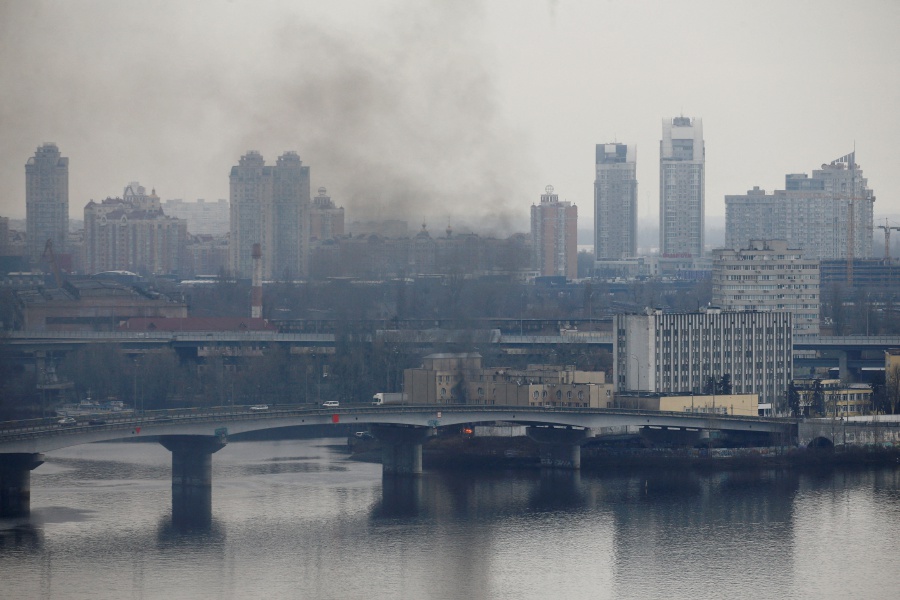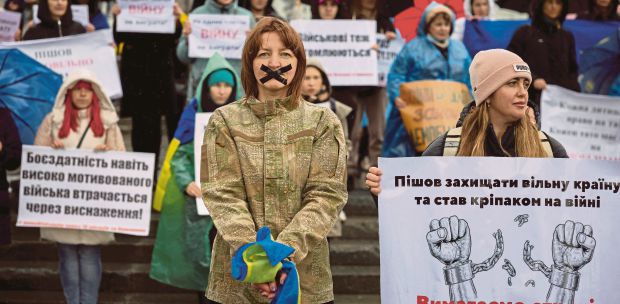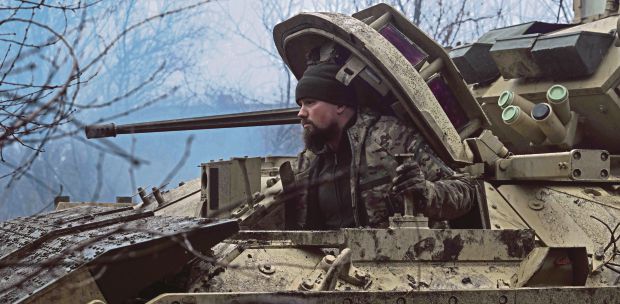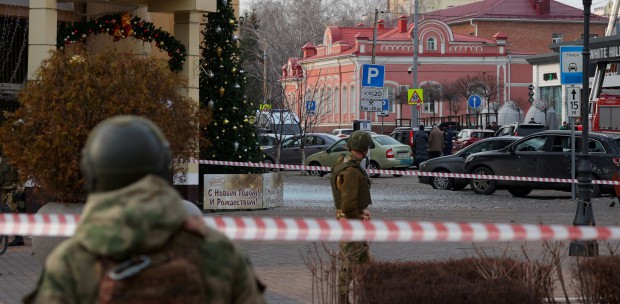RUSSIAN President Vladimir Putin started his long-anticipated invasion of Ukraine, triggering one of the worst security crises in Europe since World War II, after threats of economic sanctions from the U.S. and its allies failed to deter him.
The Russian leader, in a televised speech coinciding with the start of the operation around dawn, vowed to "demilitarize" the neighboring country of more than 40 million people, denigrated the Ukrainian leadership and said the assault was targeted at people he said have taken Ukraine "hostage."
Around the same time, a barrage of missiles, artillery and air attacks rained down on Ukraine, and Russian forces moved toward its capital city of Kyiv from positions in Belarus. Ukraine's border guard said it was being shelled from five regions, and Russian tank convoys were entering the country. Ukraine said dozens of its soldiers were killed in the first hours of fighting. Photos showed traffic jams as citizens rushed to exit Kyiv, and long lines outside bus stops, gas stations and cash machines.
The invasion, despite a massive troop buildup and months of warnings from Western leaders and intelligence agencies that Putin was preparing for it, sent shockwaves across global markets. Oil surged above $105 a barrel and natural gas prices in Europe jumped more than 41%. Gold, aluminum, copper, nickel and food prices also spiked. Russia's ruble dropped to a record low and its stock market plunged as much as 45%, wiping out more than $250 billion in value at a stroke.
The disruptions to prices, coming against the background of a global inflationary spike, forced European finance ministers and central bank governors to rewrite their agenda for a meeting in Paris on Friday. The officials will discuss the economic consequences of the conflict, notably on energy prices, the French ministry said, after announcing the change in program.
In his televised address, Putin said Russia had no plans to "occupy" Ukraine and that the action was justified after the U.S. and its allies crossed Russia's "red line" by expanding the NATO alliance along Russia's borders. In recent months, Putin has amassed as many as 190,000 personnel, including battle units, near Ukraine, even as the Kremlin continuously denied plans to invade.
In a speech laden with unsupported claims, Putin made clear that Moscow is targeting what he called "the Kyiv regime." He called on Ukrainian troops to lay down their arms and go home, but vowed to bring to justice those who carried out "multiple bloody crimes against civilians" -- a reference to the current government. He described the leadership as a "junta, the people's adversary which is plundering Ukraine."
Russia's aim is to ensure that a new administration in Ukraine is friendly to Moscow and free of U.S. influence, according to a senior legislator from the ruling party.
The initial wave of Russia's attack on Ukraine involved 75 heavy and medium bombers and more than 100 missiles of various types, according to a U.S. defense official who briefed reporters. It appears designed to seize key population areas, including Kharkiv, with the goal of decapitating Ukraine's government, the official said.
Ukrainian President Volodymyr Zelenskiy said in a televised briefing from Kyiv that Ukraine would not surrender its independence and had cut diplomatic ties with Russia. His spokesman, Oleksiy Arestovych, said the government would offer weapons to anyone prepared to defend Ukrainian territory.--BLOOMBERG





